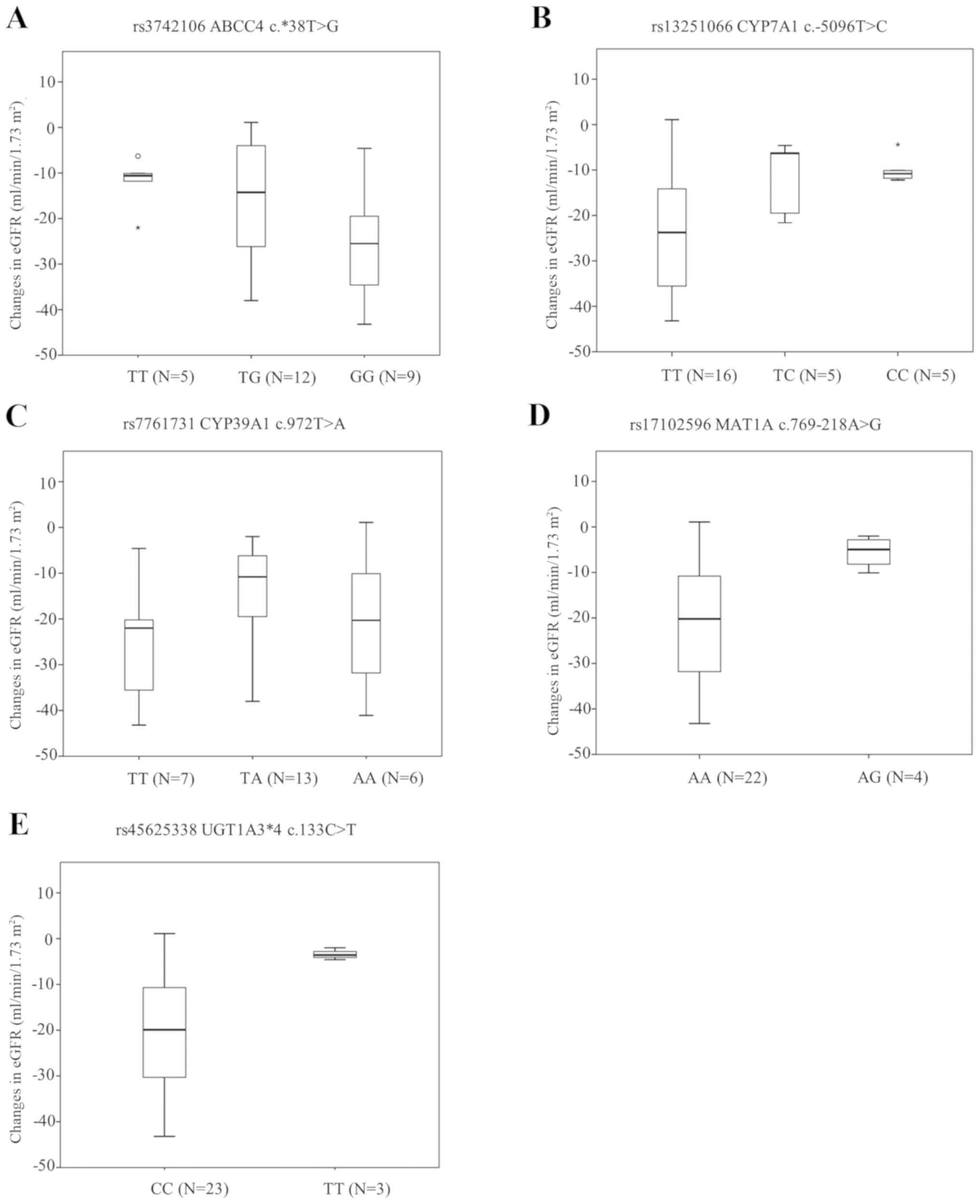Spandidos Publications style
Oda H, Mizuno T, Ikejiri M, Nakamura M, Tsunoda A, Ishihara M, Saito K, Tamaru S, Yamashita Y, Nishimura Y, Nishimura Y, et al: Risk factors for cisplatin‑induced acute kidney injury: A pilot study on the usefulness of genetic variants for predicting nephrotoxicity in clinical practice. Mol Clin Oncol 13: 58, 2020.
APA
Oda, H., Mizuno, T., Ikejiri, M., Nakamura, M., Tsunoda, A., Ishihara, M. ... Katayama, N. (2020). Risk factors for cisplatin‑induced acute kidney injury: A pilot study on the usefulness of genetic variants for predicting nephrotoxicity in clinical practice. Molecular and Clinical Oncology, 13, 58. https://doi.org/10.3892/mco.2020.2127
MLA
Oda, H., Mizuno, T., Ikejiri, M., Nakamura, M., Tsunoda, A., Ishihara, M., Saito, K., Tamaru, S., Yamashita, Y., Nishimura, Y., Nakatani, K., Katayama, N."Risk factors for cisplatin‑induced acute kidney injury: A pilot study on the usefulness of genetic variants for predicting nephrotoxicity in clinical practice". Molecular and Clinical Oncology 13.5 (2020): 58.
Chicago
Oda, H., Mizuno, T., Ikejiri, M., Nakamura, M., Tsunoda, A., Ishihara, M., Saito, K., Tamaru, S., Yamashita, Y., Nishimura, Y., Nakatani, K., Katayama, N."Risk factors for cisplatin‑induced acute kidney injury: A pilot study on the usefulness of genetic variants for predicting nephrotoxicity in clinical practice". Molecular and Clinical Oncology 13, no. 5 (2020): 58. https://doi.org/10.3892/mco.2020.2127















